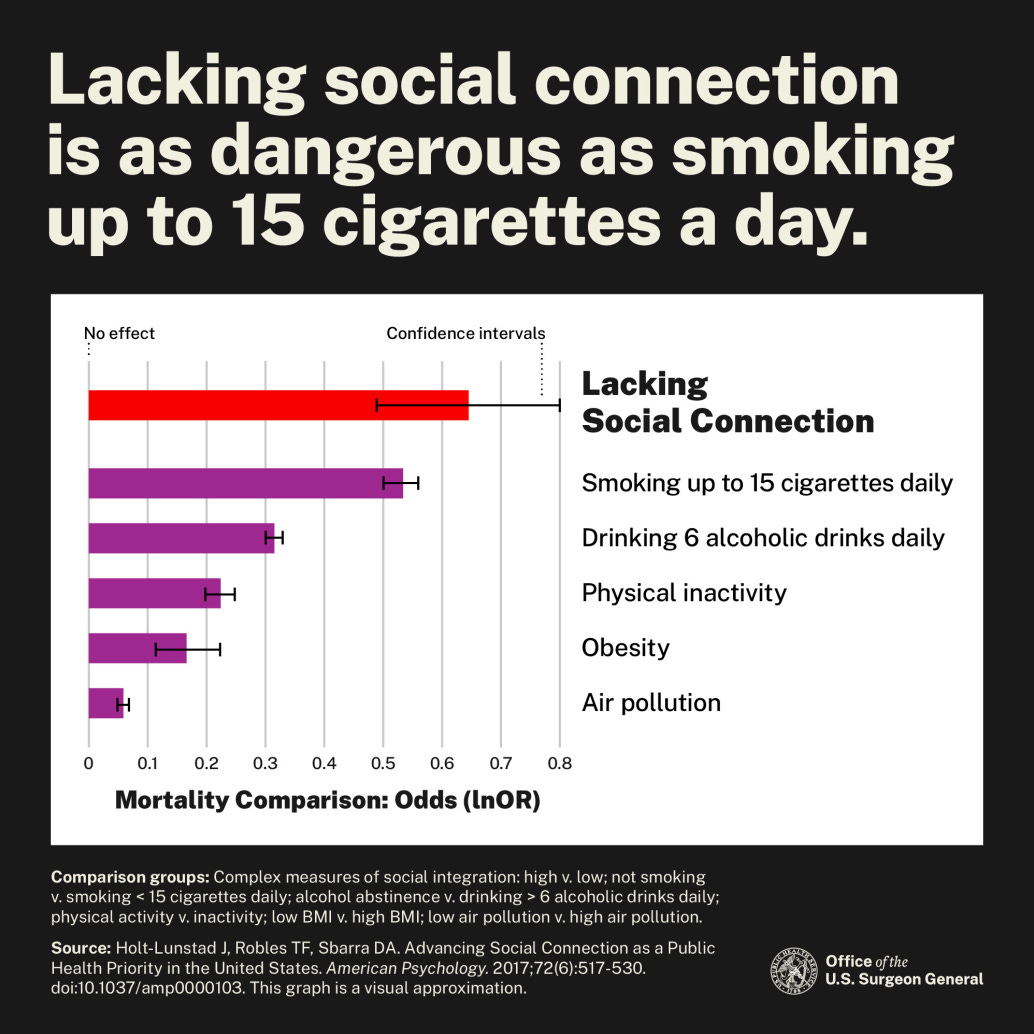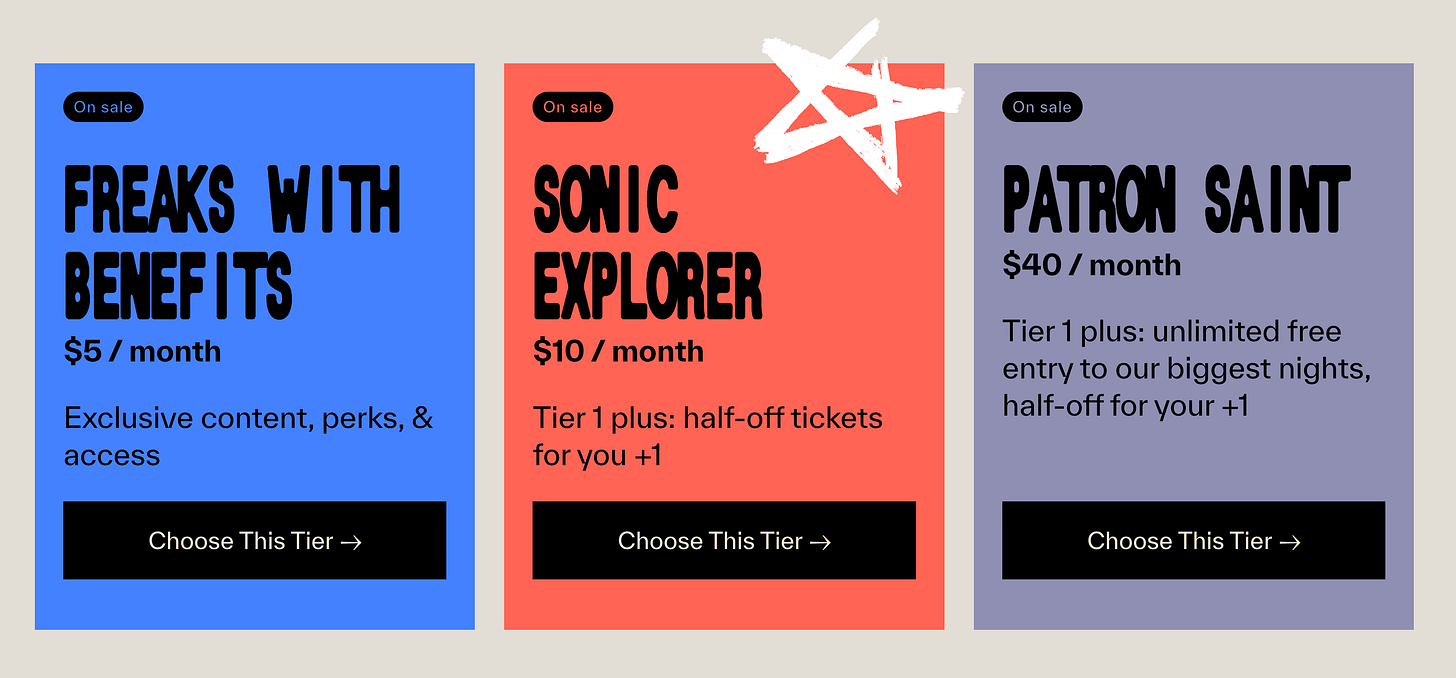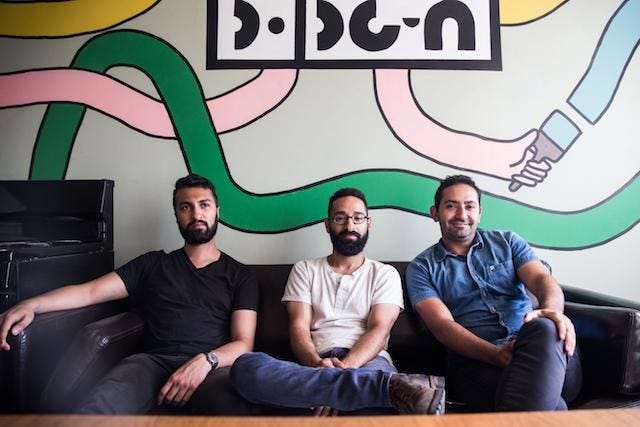The Indie Future of Live Music: A Conversation with Dhruv Chopra
Dhruv Chopra and his business partners run Elsewhere, an incredible music venue in Brooklyn. Together they've tried to build the blueprint for how independent venues can survive in the 21st century.
Every music lover has that one concert that sparked their love for live entertainment. For Dhruv Chopra, it was seeing Bryan Adams during his 1994 tour of India. Chopra was only four at the time, but he had the live music bug. After a stint working in sustainable finance, he came together with two of his friends that founded the booking agency PopGun Presents to open Elsewhere, one of the most exciting independent venues in New York City.
Last week, Chopra and I spoke about how live music can combat the loneliness epidemic, why a subscription model might be the future of the industry, and how independent artists can thrive in a space dominated by global superstars.
A Conversation with Dhruv Chopra
I came across an interview you did with the Tickets podcast in 2018. You described how live music has changed so dramatically, especially in New York. It’s no longer possible to open a venue like CBGBs where it's just a guy with an idea who books show. Rent is just too expensive and scores of venues close each year.
“Elsewhere,” you said in that interview, “was conceived with this idea that we would champion best practices in independent music with best practices in business.” I want to talk a bit about each of those ideas. First, what does it mean to champion best practices in independent music?
You really dug deep. I don't even remember that podcast. But that sounds like something I would say. I think the joy of independent music is the community element of it. Going to an independent venue feels like you're going to somebody's house. When you think of venues like that, you are usually thinking of these small, mom-and-pop type spaces where friends got together and host shows with a little money. That kind of thing was common in New York City in the 1970s. It was possible because rents were low and there wasn’t much regulation.
So, to champion best practices in independent music today means your venue has that small, intimate, homegrown, somewhat chaotic feel. Independent isn’t perfect. It’s rough edges. There isn’t white glove service. Everyone feels like a participant in the space, whether you are in the audience or on stage.
One thing that’s interesting about Elsewhere is that it has multiple stages. When I went a few months ago, I loved how intimacy emerged from the fact that you had all of these people spilling out of different rooms. Maybe there are some people coming out of a metal show for a smoke break after an opener. Maybe there are others coming out of a rave to get some air. Bringing all of these unexpected people together can create these beautiful, serendipitous moments. I think that’s important in our highly online world. People long for human touch.
The classic business question is always, “What's the problem you're trying to solve?” For me, Elsewhere is trying to address loneliness. It’s an epidemic. Even the Surgeon General has written about it. With so many people working from home, third spaces are more important than ever. People need places to come together.

We think of artists as our partners. Artists build relationships with their fans. We then help artists connect with their fans. But we also want Elsewhere to be a place where fans can connect with one another. A traditional concert can feel very one-on-one, the people in the audience with their eyes locked on the artist. There isn’t a ton of interaction between people in the crowd. But those people in the crowd likely have a lot in common. How do we engender interaction between those people? One way is to create an open space with multiple rooms and shows where people who like adjacent genres can pollinate. And those adjacencies are not always obvious.
We’ve found that hip-hop and metal shows, for example, go very well together. Ultimately, we are all relatively young, progressive people connected by a global youth culture via the internet. Our lives aren’t as modular as we think.
So, the other part of that quote we began discussing was how you also have to champion best practices in business. What exactly does that entail?
We live in the biggest capitalist society in the world. Money is unfortunately necessary to open a venue. We have to put up dry wall and an HVAC system. We need cables, lighting, and a sound system. We need plumbing. All of that stuff is expensive.
We do 600+ events a year, with 300,000 fans and thousands of artists coming through our doors. You just can’t run a venue the same way that a place like CBGBs was run in the 1970s. There is just so much more regulation. And I’m not even complaining about all of that. We want to uphold high safety standards. We want to have an in-house security team with sensitivity training and active shooter training. We want to give artists a green room with a washing machine and a dryer. We want to give them a place to park. We need money to bring all of that to life.
And I guess ultimately that money is for the benefit of small, independent artists.
It is. Live music is booming right now. But that boom is mostly benefitting the world’s biggest stars. But creator tools are also booming. There are hundreds of thousands of songs uploaded to streaming services daily. Most of those uploads are not from the world’s pop stars. They are from a kid in their bedroom trying to make the next big thing. And those kids now account for a larger percentage of listening than ever before.
So, there is definitely monetary value in investing in a real life live music ecosystem. If we want to grow, if we want to support that growing creator economy with scores of burgeoning microgenres, we need money. Otherwise, you will just have more of the financial reward going to the world’s biggest artists.
Earlier, you mentioned that there are dramatically more regulations to comply with these days. Of course, you want Elsewhere to be a safe space, but do any regulations come to mind that are overly onerous on small venues?
I think that the biggest issue may not be the regulations themselves but the complexity of navigating them. There are just so many regulations all managed by different authorities. It becomes a full-time job trying to figure out which regulations apply to you and who to get approval from. It would be a huge help to small businesses to centralize all of that.
On top of that, the approval process can be incredibly long, sometimes lasting months, if not years. As you wait, you still need to pay rent. That can crush a small business. Bigger companies can hire lobbyists and lawyers to get them through those long, arduous processes.
Elsewhere has a membership club where people can pay a monthly fee to get half-priced tickets, among other perks. I haven’t seen anyone else doing that. Do you think a subscription model is the future of live music?
We launched our membership program in March 2023 with about 1,500 spots and it sold out in minutes. We were shocked. We knew that that kind of demand wasn’t just driven by discounts. We realized that people want to be part of the club, not just attendees. They want to more actively participate in a community of young music lovers. So, it’s not just a loyalty or rewards program. It’s a way for music fans to meet other music fans and promote live music discovery.

Young people today don’t seem interested in country clubs or golf or tennis as much as their parents are. They are looking for other ways to be part of a community, and we are looking for other ways to provide that community. Recently, we built a Discord channel that has about 4,000 monthly users. Of course, people talk in there about what is going on at Elsewhere. But they also talk about art, culture, and anything that interests them. So, I could see this model as a way for venues to thrive in the future.
Over the last year or so, there have been a handful of hot button live music issues that I’d be remiss not to ask you about. First, let’s talk about concentration in the ticketing industry. Recently, there’s been a ton of backlash against the Ticketmaster-Live Nation behemoth. I noticed that Elsewhere does not work with Ticketmaster. Was that a conscious decision?




